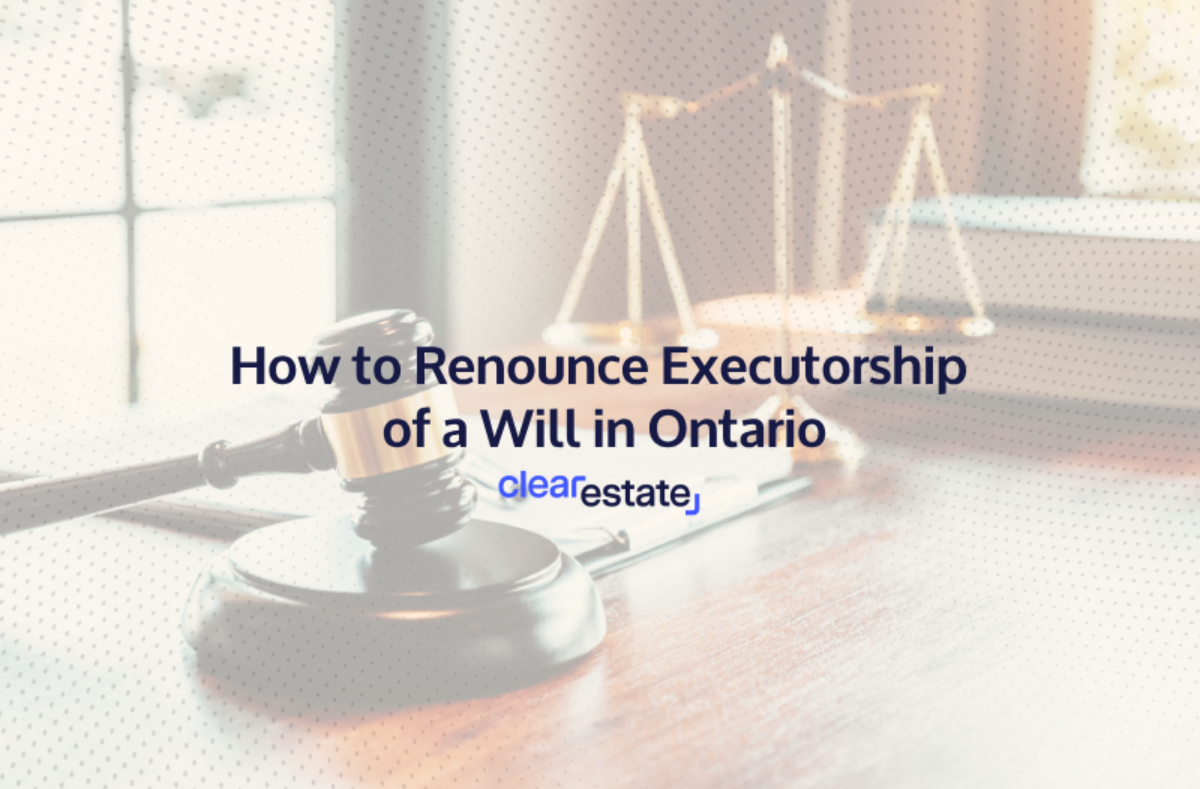Estate Settlement
Dec 04, 2024
How Do Executors Mail Inheritance Checks?
Find out how inheritance checks are mailed, including security measures and what to do if there are delays in receiving them.
Named as an executor in a will? Understand your rights: you're not obligated to accept this role. Learn about renouncing executorship in Ontario.


Renouncing executorship means declining the role of executor when named in a will. You are not obligated to accept the appointment if unable or unwilling to take on the responsibility. Renunciation is straightforward if done before fulfilling any executor duties.
To make your renunciation effective, you must document it properly and notify the beneficiaries. This formal process ensures that the estate can move forward with an alternate executor or by having the court appoint someone else to administer the estate.
If you wish to renounce, you must do so at the outset.
Once you start administering the estate or "intermeddling," you cannot simply renounce later. You would then need to resign and pass your accounts, which is a more complex process.
Any action that changes the estate, such as dealing with assets or liabilities. For example:
When an executor renounces their role, it's important to understand what happens next. In many cases, this leads to the appointment of a successor trustee.
A successor estate trustee can be appointed by the Court if:
Note: The process for appointing a successor trustee can vary depending on specific circumstances, such as:
Deciding whether to accept or renounce the role of executor is a significant decision that requires careful consideration. Throughout this guide, we've covered:
Remember, while being named as an executor is an honor, it's also a substantial responsibility. It's crucial to make an informed decision based on your circumstances and ability to fulfill the role effectively.
If you're considering renouncing your role as executor, or if you're a beneficiary dealing with an estate where the named executor has renounced, it's important to seek professional guidance. Our team of experienced estate lawyers can provide the support and expertise you need.
 Simplify Probate Today
Simplify Probate Today
Get expert guidance from our probate specialists who've helped 10,000+ families.
Book a free consultation today